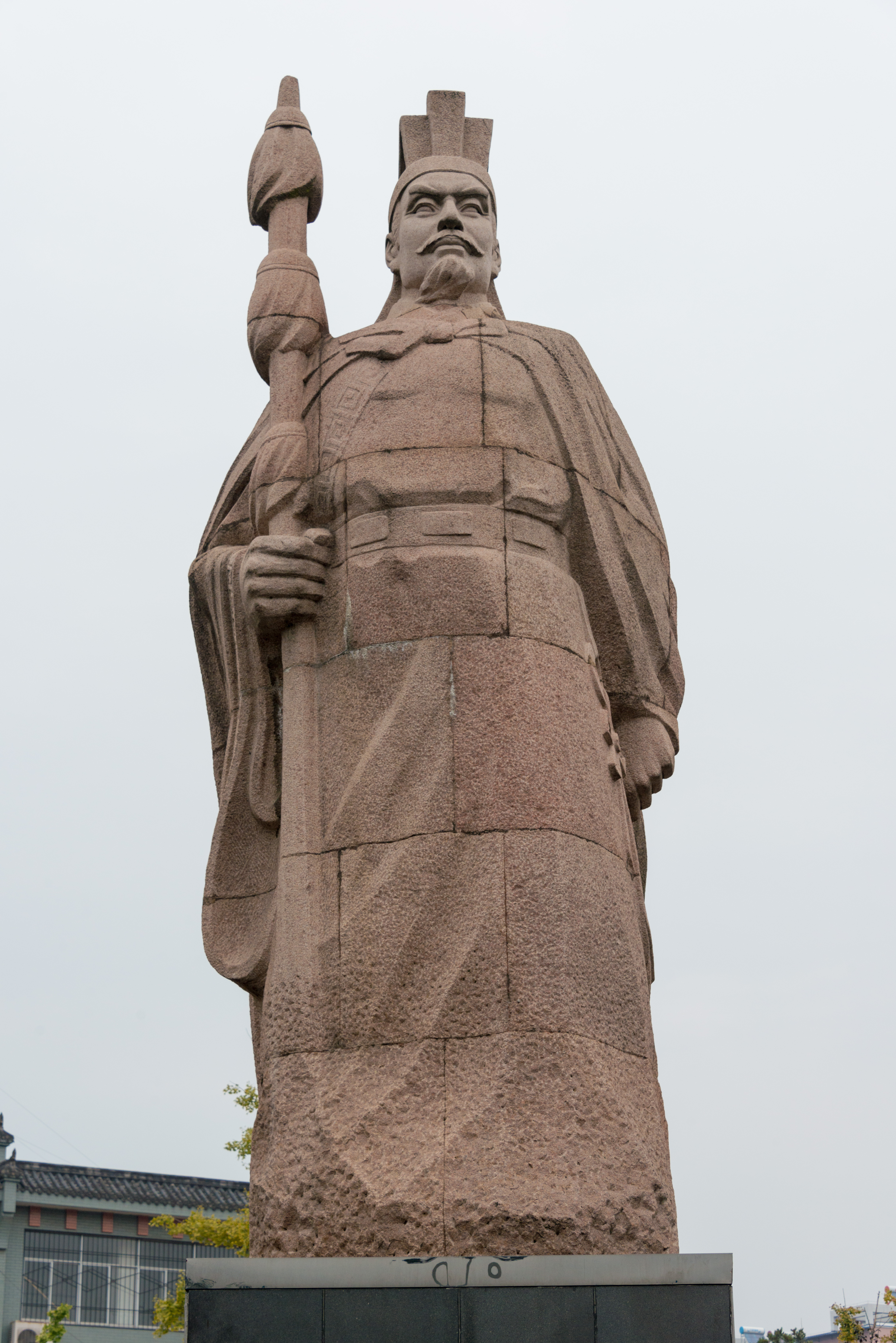Zhang Qian (?-114 B.C., also spelled Chang Ch’ien) was an ancient Chinese explorer who traveled in the service of Emperor Wudi (also spelled Wu-ti) during the Han dynasty. The Han dynasty was a series of emperors of the same family that ruled China for over 400 years. Zhang’s journeys expanded Chinese knowledge of the world and laid the foundation for later trade between China and the West. 
Zhang was born sometime before 150 B.C. in Hanzhong, in central China. He worked in the royal palace in Chang’an (now Xi’an), the capital. During the 100’s B.C., the Chinese wanted to destroy large nomadic tribes called the Xiongnu (also spelled Hsiung-nu), who demanded tribute and raided towns and villages in northern China. The Xiongnu may have been the ancestors of the Huns, a central Asian people who later invaded Europe. The Xiongnu already had conquered Chinese nomads called the Yuezhi. They made the Yuezhi king’s skull into a ceremonial drinking cup and exiled the Yuezhi. Emperor Wudi hoped the Yuezhi would form an alliance with him to defeat the Xiongnu.
Zhang offered to contact the Yuezhi for the emperor. He set out about 138 B.C. with some 100 men, including an enslaved Xiongnu man named Ganfu. The Xiongnu captured Zhang’s party and took them to their chanyu (emperor). The chanyu held Zhang captive, but he also gave him a wife. The couple had a son together.
Zhang escaped after more than 10 years and continued on his journey to find the Yuezhi. By then, the Yuezhi had moved west to the fertile lands of Bactria, a former Greek colony in central Asia. Zhang passed through the Ferghana Valley in what is now Uzbekistan on his way to reach the Yuezhi. There, he noted horses that were stronger and sturdier than those available in China.
In Bactria, Zhang saw goods for sale that he knew were produced in regions just to the southwest of Han-controlled China. He learned that the merchants had purchased these goods from the Indian subcontinent. Zhang gathered as much information as he could about India from the Bactrians. He also learned about the kingdom of Parthia that lay to the west of Bactria.
Zhang failed to convince the Yuezhi king to join the Chinese against the Xiongnu. He took a different route back to China to avoid the Xiongnu, traveling south of the Taklimakan Desert and north of Tibet. But the Xiongnu again captured Zhang and detained him for about a year.
Zhang escaped the Xiongnu with his wife and son and Ganfu during a civil war. They returned to China around 126 or 125 B.C. Zhang gave Wudi a detailed report on his voyage. His accounts of Bactria, India, Parthia, and many other regions were the first accurate descriptions that China had received of these places.
Wudi was fascinated with the opportunities Zhang presented for diplomatic, economic, and military expansion in Central Asia. The emperor promoted Zhang and sent him on more diplomatic and military missions. These missions increased the empire’s power and helped open the network of trade routes later known as the Silk Road. Zhang died in 114 B.C.
